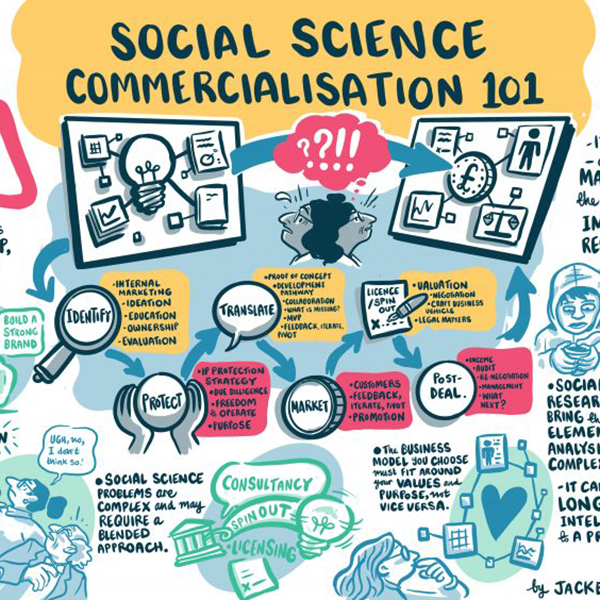Webinar recording
Panel members
- Horatio Mortimer (Chair) – Business Innovation Manager, LSE
- Morven Fraser-Walther – IP & Innovation Manager, University of Glasgow
- Dr Nick Bourne – Deputy Director, Head of Commercial Development, Cardiff University
- David Ai – Head of Innovation, LSE
Session summary
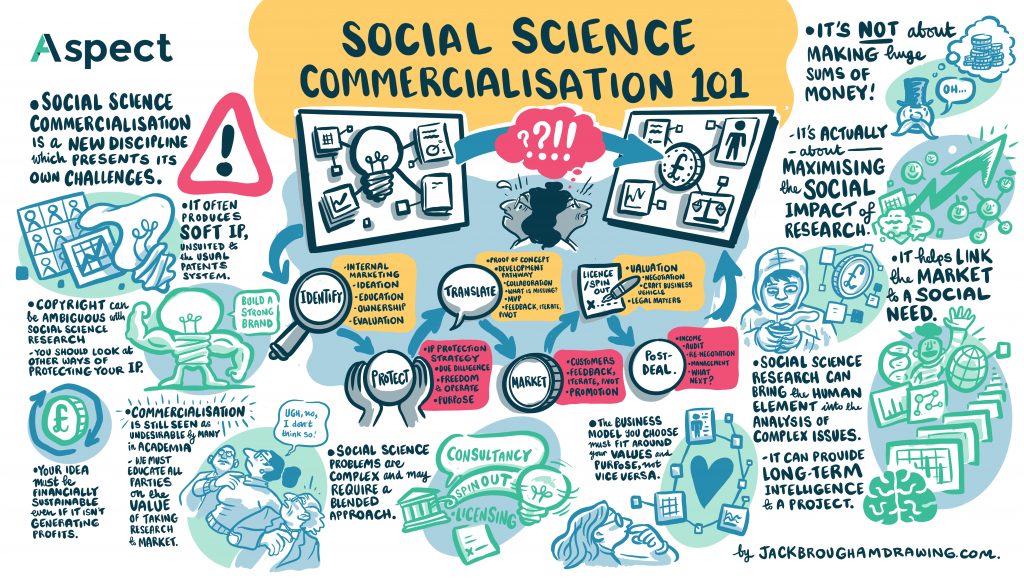
Knowledge Exchange and Commercialisation (KEC) is an integral part of most universities’ activity, which aims to share knowledge, evidence and expertise generated by the university with the wider world. KEC can provide huge benefits to the university including impact, revenue, prestige, but prior to the Aspect programme of work, very little attention was given to social sciences research commercialisation and its associated ecosystem. This session discussed how the traditional KEC process can be developed into a framework that suits the translation of social science research and how to practically implement that framework.
Some key messages summarised below:
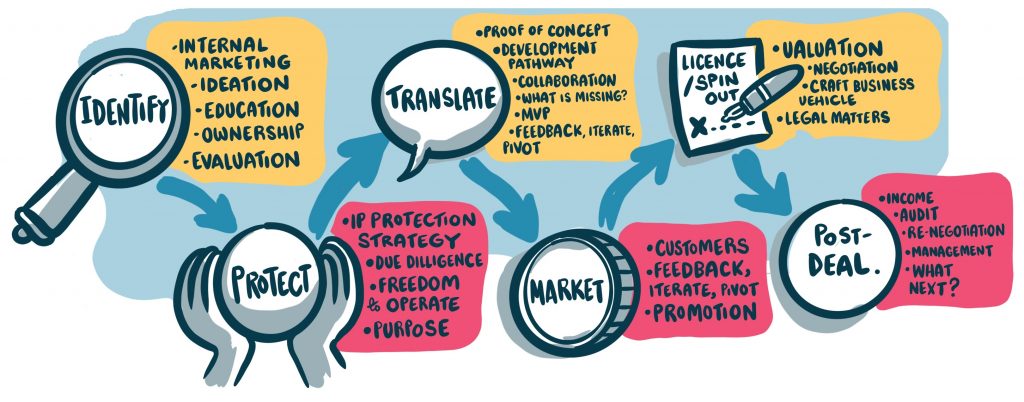
The social science research commercialisation framework and process largely follows the same establish path for technology transfer (see above). This starts with the identification and formation of the idea, followed by due diligence activities and a review and identification of the core concept, minimum viable product, definition of the purpose of the venture and an interrogation of the market. All of these activities help to ensure that the appropriate vehicle for translation is found to maximise success and impact.
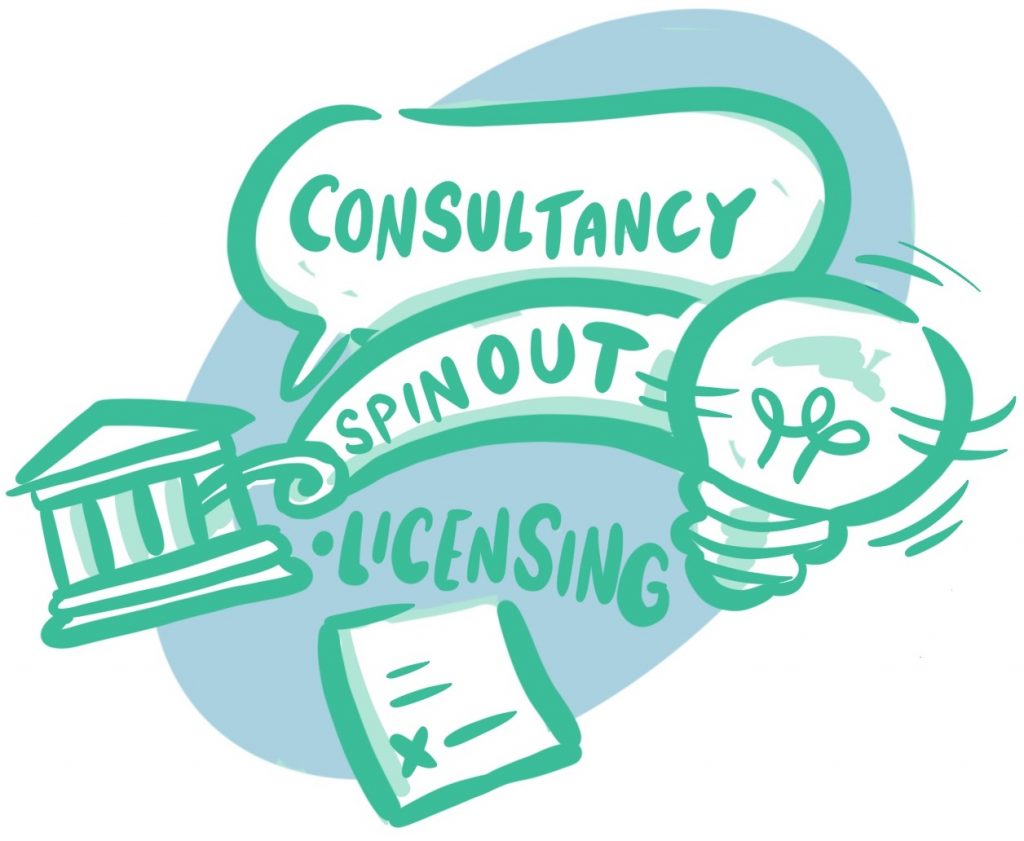
Social science problems are complex and may require a blended business approach such as a mix of consultancy, licencing and spinout. A blended approach needs to coordinate/integrate service units related to consulting, licensing, and entrepreneurial activities on campus.Many academics are already familiar with the consultancy model. A repeat demand for the same services can lead to a new product idea that may be a foundation of a spin-out company. To maximise the value of this approach, some institutions have taken steps to strengthen the ties between their consulting and spin-out commercialisation units. Social science research commercialisation can also benefit from adopting new business models. For example, Wikipedia deploys a mixed non-profit /commercial model, where a non-profit foundation is set up to pursue advocacy and educational goals while another for-profit company is set up to manage Wikipedia’s website and operations which can hire and retain staff competitively in the open market. A similar mixed model also exists in licensing, where academic users pay a lower fee on a licensed database or software product, while other commercial users pay a higher market rate for essentially the same product (e.g. Ingres database and Linux operating system).

Social science research commercialisation is about maximising the social impact of research. The process can help link the market to a social need and can provide long-term intelligence to a project. Businesses are investing more and more in social science areas, but the results, though highly valuable, are often intangible (human capital, organisational capital and social capital), and are not regarded as capital formation in accounting practices. This can make them less visible to investors. We need to showcase to businesses that social science research can bring the human element into the analysis of complex issues and is valuable.

Commercialisation can ensure that socially beneficial ideas are financially sustainable sustainable and/or creates significant societal impact. Many academics are completely on board with generating social impact from their research but baulk at the idea of ‘commercialisation’ as it has ‘poor’ connotations that researchers worry may taint their research or create a conflicting commercial interest that could limit their ability to advise and comment on the policy and regulatory environment. It is important for the KEC framework to emphasise that it is not necessarily about making huge sums of money but can ensure an idea is financially sustainable. The business model must fit around the academic and institutional values and purpose for the idea and align with the market need. We can start to tackle the mis-information surrounding commercialisation by providing more examples and role models for faculty to emulate. For example, one prominent non-profit company, Evidence to Impact, is a spin-out from Cardiff. It uses evidence-based public health research to develop innovative products and services, such as its ASSIST programme on smoking prevention amongst early teenagers in schools across the UK.
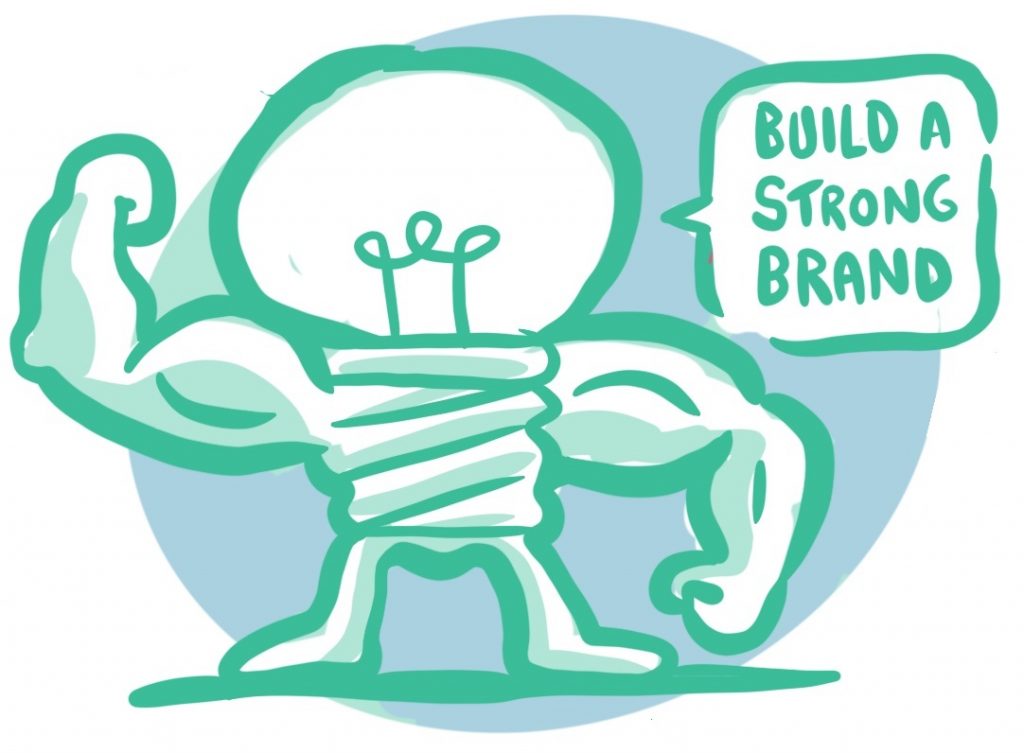
Social sciences often produces soft IP, unsuited to usual patent systems. The lack of patent protection for most social science projects can be an issue – although it can be overcome by careful planning of other competitive advantages such as the brand name, strong partnership/sponsorship and being the first mover. Relationship building can also provide unique opportunities for social sciences and the session discussed several projects that have longstanding collaborative relationships with government entities and agencies. Such engagements, once established, also tend to be a sustainable competitive advantage.
